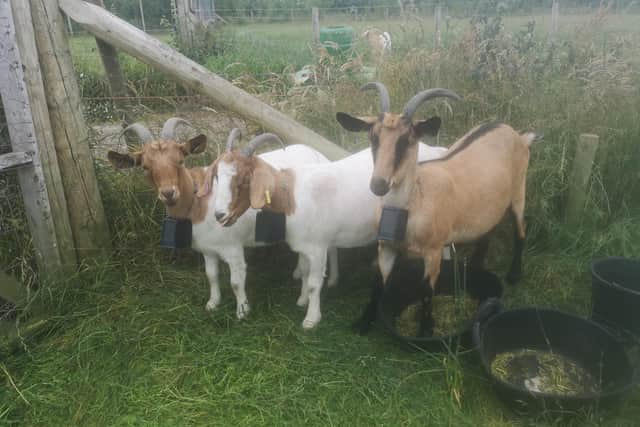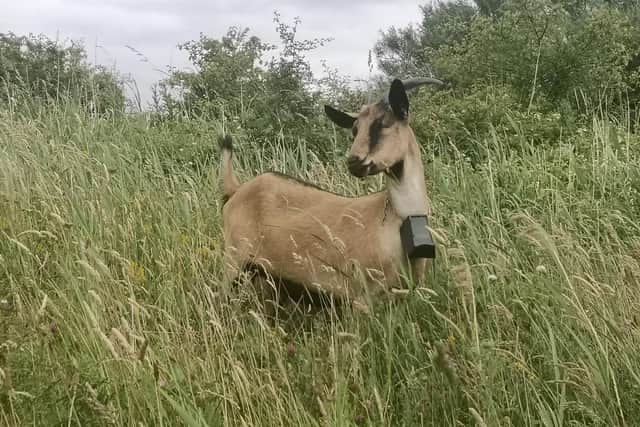Goats take up residence on Northumberland nature reserve
and live on Freeview channel 276
Hazel, Bluebell and Lily hate getting wet so must have their own on-site shelter, but on the plus side, they eat almost anything.
The terrific trio are 18 month old English goats and English Boer X goats who are inseparable, having lived together at Wilde Farm in Ponteland since they were born.
Advertisement
Hide AdAdvertisement
Hide AdBluebell and Lily are sisters and Hazel is their best pal and half-sister. Together they are helping the wildlife charity trial a new targeted habitat grazing scheme on the 185-hectare reserve, which, if successful, will be rolled out across other reserves in the area.


East Chevington reserve’s wildflower meadows are of particular significance to the Trust’s National Lottery Heritage Fund backed Catch My Drift project which is working to protect, and revive, threatened habitats on the Druridge Bay site.
The goats are now involved in scrub control - eating the willow, bramble and reed canary grass that out compete the flowers on the site by keeping them in the shade and stopping them from growing.
Each goat wears a hi-tech Nofence collar with a GPS tracking system inside it. Clearly defined GPS boundaries alert them as to where to stop but, should they try and wander further, a series of noises keep them in the designated area.
Advertisement
Hide AdAdvertisement
Hide AdIn order for them to associate the noises with the boundaries, they spent three weeks in a training paddock with farmer Dave Wilde on his 12 acre Wilde Farm in Ponteland.


The method used is totally humane and staff and volunteers will be visiting the site twice daily to check on their welfare - they are well truly pampered.
The decision to employ goats as opposed to cattle came following discussion with Stephen Comber, Northumberland Wildlife Trust’s Flexigraze manager and farmer Dave, both of whom are experts in farming practices.
Dave’s rare pigs are currently on the Hepple Estate as part of a woodland regeneration project and Stephen’s sheep, cattle and ponies have grazed on Trust reserves over the years as part of Northumberland Wildlife Trust’s Flexigraze conservation grazing scheme.
Advertisement
Hide AdAdvertisement
Hide AdStephen said: “As a species, goats are smaller than cattle and therefore ideal for grazing small quite quickly.
"They are also quite easy to handle and transport between sites, so if this gazing trial at East Chevington is successful and is rolled out across other reserves, Hazel, Bluebell and Lily may well be off to pastures new.”
Dave Wilde, from Wilde Farm says: “We are no strangers to re-wilding projects, so we are delighted to be working with the Trust on what we hope will be the first of many projects.
“Stephen and myself are hoping to increase the rewilding herd up to around 15 - 20 goats if the initial trial is a success and also plan to use them on other conservation and rewilding projects.
Advertisement
Hide AdAdvertisement
Hide Ad"English goats are an extremely rare breed and are on the Rare Breed Survival Trusts (RBST) priority list, so the potential growth in numbers the Catch My Drift project offers is particularly welcome.”